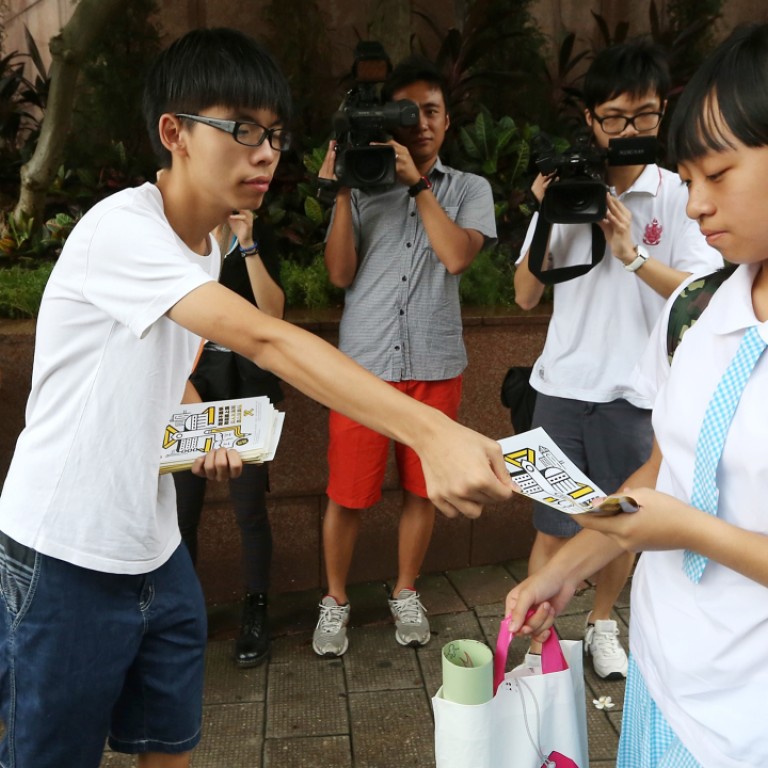
Class boycotts over political reform should be confined to tertiary level
The tussle between the supporters and opponents of Occupy Central is far from over. After Beijing imposed a stringent framework for the 2017 chief executive election, another war is looming.
The tussle between the supporters and opponents of Occupy Central is far from over. After Beijing imposed a stringent framework for the 2017 chief executive election, another war is looming. This time the battlefield has shifted from ballot boxes and streets to classrooms and campuses. Starting from September 22, university students are to stage a week-long class boycott. Some secondary school pupils are also planning to join the protest.
The youngsters deserve commending for their passion for democracy. They see it as their duty to speak up for Hong Kong's future, as they did when opposing the controversial national education curriculum in 2012. Their actions may not necessarily win cross-sector support in society, but their determination to stand up for their ideals should be appreciated.
There is nothing wrong with the proposed boycott at the tertiary level. The organiser - the Federation of Students - has staged protests in the past. They hope to force Beijing to allow public nomination of candidates for the 2017 chief executive election - a concept that has already been ruled out by the central government. Although the students are unlikely to succeed, they are mature enough to make informed choices. But class boycotts by pupils at secondary schools are a different matter. They are still immature and need guidance. At school, their behaviour is governed by clear rules. At home, they are under the supervision of parents or guardians. Given their young age and susceptibility to influence, it is in the pupils' interest to steer clear of any boycott.
The strike has understandably aroused concerns about pupils being manipulated by political forces. Although student groups at the tertiary and secondary levels maintain that they are acting independently, it will not stop the alliance against Occupy Central from staging a counter campaign, in which people can report pupils and teachers promoting class boycotts. However good their intentions might be, it only serves to deepen the political divide. Similarly, Occupy Central activists should not be seen as manipulating students to advance their goals.
As long as university students fully understand what they are signing up for, act within the law and take responsibility for their actions, it is their right to protest. But those in secondary school should not take part in class boycotts.

